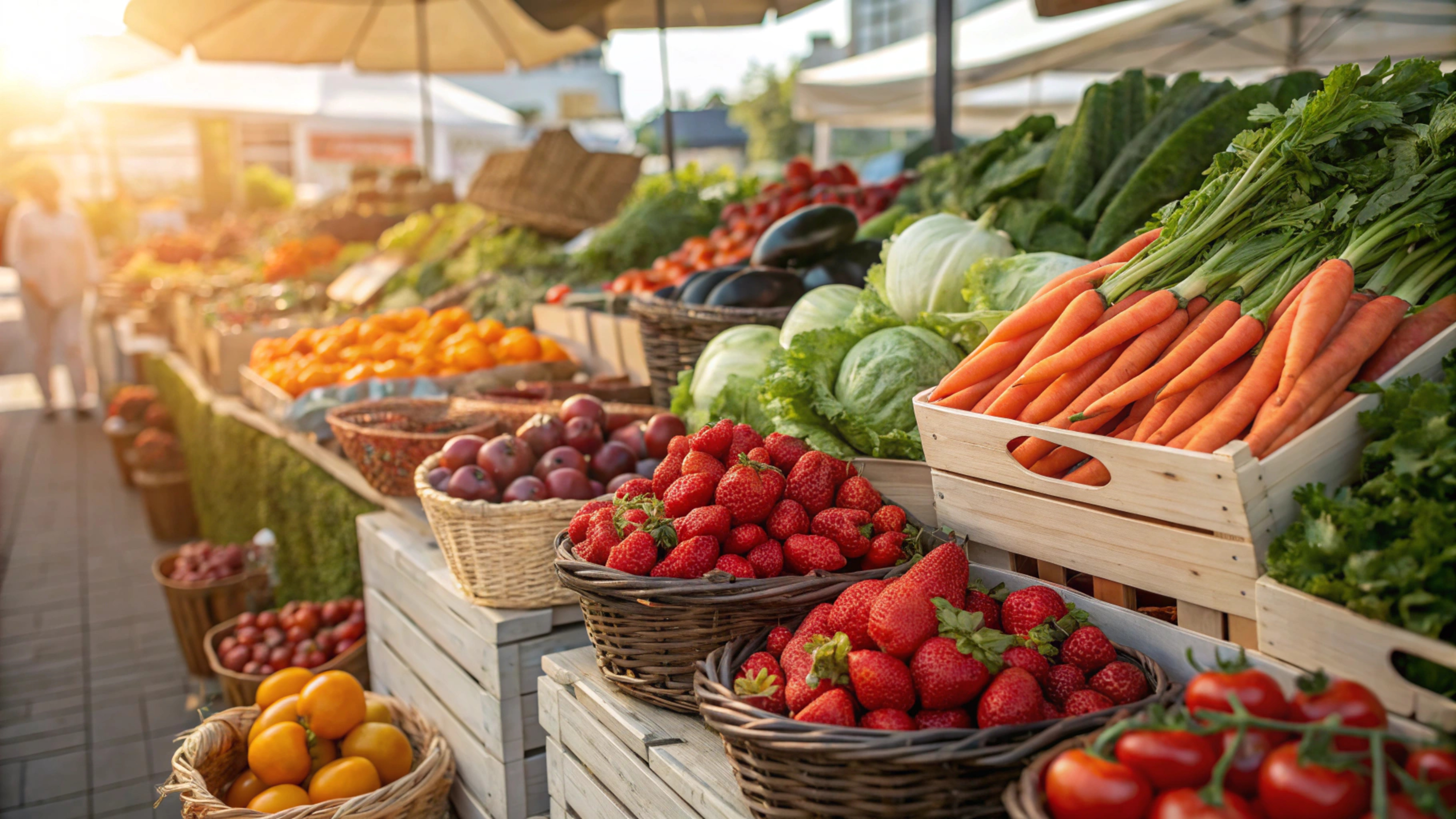
Published on August 12, 2025
Read Time: 2 Minutes
Three Things to Know
- Seasonal eating means choosing foods grown and harvested at their natural peak.
- Eating in season can benefit your health and your community, with fresher produce grown by local farmers.
- Getting started is simple—shop at local farmers markets or grow your own fruits and vegetables.
Seasonal eating has been a trending topic on social media platforms, but what does it really mean? Sarah McEnnis, Phelps Health registered dietitian, answers all your questions about this dietary trend.
Seasonal eating is a trending topic on social media. What is seasonal eating?
Seasonal eating means choosing foods that are grown and harvested during the specific time of year in which you eat them, while they are at their highest nutritional value. This approach supports local food cycles and helps reduce the need for processed or imported foods.
Are fruits and vegetables healthier during certain seasons?

While "healthy" can mean different things, seasonal foods do offer the greatest nutritional benefits. Seasonal produce is harvested at peak ripeness and generally contains more vitamins and minerals than out-of-season fruits and vegetables. Produce grown elsewhere may be harvested at its peak, but can lose nutrients during shipping if not packaged correctly.
What are the possible benefits of seasonal eating?
An increase in the nutritional value of foods is not the only benefit to eating seasonally. Other benefits include the following:
- Affordability: In-season produce is typically more affordable due to its abundance. Buying produce grown by local farmers also strengthens your community’s economy.
- Variety: Being aware of seasonal foods broadens your diet and inspires you to cook new meals. You can also adjust recipes you use regularly to include seasonal ingredients.
- Flavor: When produce is harvested in its preferred season, it is fresher and more flavorful.
- Environmental impact: Choosing locally grown foods helps reduce carbon emissions by eliminating the need to ship the produce long distances.
How do I know what fruits and vegetables are in season?
The US Department of Agriculture offers a guide to seasonal produce. Visiting your local farmers market is a great way to see what produce is currently in season.
How can I get started?
While eating seasonally is not required for good health, it offers a practical approach to getting the most nutrition from your diet.
- Shop your local farmers market to find fresh, local produce.
- Start a garden to grow your own seasonal produce and enjoy the added benefits of fresh air, sunshine and outdoor activity!
Fuel Your Health
Sarah McEnnis is a registered dietitian at Phelps Health. Phelps Health dietitians provide nutritional education by referral and through the Weight Loss and Bariatric Center. If you’d like to meet with a dietitian, ask your provider for a referral.